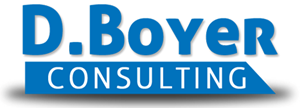Business is mostly conducted via email or phone communications.
Office hours 10:00 a.m. to 6:00 p.m, Mon. - Thurs., and 10:00 a.m. to 2:00 p.m. on Fridays.
SEND EMAIL INQUIRIES DIRECTLY TO:
Dawn.Boyer@me.com
Business is mostly conducted via email or phone communications.
Office hours 10:00 a.m. to 6:00 p.m, Mon. - Thurs., and 10:00 a.m. to 2:00 p.m. on Fridays.
SEND EMAIL INQUIRIES DIRECTLY TO:
Dawn.Boyer@me.com
Business is mostly conducted via email or phone communications.
Office hours 10:00 a.m. to 6:00 p.m, Mon. - Thurs., and 10:00 a.m. to 2:00 p.m. on Fridays.
SEND EMAIL INQUIRIES DIRECTLY TO:
Dawn.Boyer@me.com
Are your ‘ums’ and ‘ahs’ and ‘ands’ killing your interview(s)?
February 26th, 2013 by Dawn Boyer
Are your ‘ums’ and ‘ahs’ and ‘ands’ killing your interview?
(Listen to the podcast here!)
The first impression to a potential employer is definitely how you look when you walk in the door – shoulders back, head erect, smart looking in a freshly pressed business suit, shined shoes, hair stylish. You look the part of the job. You earned it.
The second impression for the interview is how you speak and how you present yourself as being ‘articulate.’ It’s amazing how many job candidates walk out of an interview and thought they ‘nailed it’ by answering all the questions thoroughly and thoughtfully. Days later they receive the rejection email with no real explanation of what it was that tripped them up for serious consideration.
It could be their manner of speaking – literally. If you are applying for a sales position, a figure-head public relations representative job, or in a career field where fluent speech is a must, there is no room for filler words. You know what I’m talking about – the teenager’s ‘you know’ that comes every six words, the faltering confidence fillers such as ‘um,’ ‘ah,’ or the ever-present ‘and’ every three words to fill in the silence. Some folks use the word ‘like’ throughout their conversations.
Americans hear noise coming at them from media sources – radio, TV, phone, and office chatter almost 24/7. They are unaccustomed to the silence between sentences and tend to avoid that silent gap with a ‘filler word.’ Some people psychologically feel if they don’t continue to talk, non-stop, the ‘stage’ will be taken from them and the power will be stripped from them in the conversation.
People who constantly use those filler words are painful to listen to. If a middle-aged job applicant walks into an interview and I can count the ‘ums’ and ‘ahs’ in the dozens or even the hundreds, that’s a problem. I am not going to hire that person, no matter how good the answers are or how thoughtful the responses, or their broad experience. They can’t carry out an intelligent conversation with my clients if they need to use conversation crutches.
How many interviews did you attend where you used those crippling filler words and came across like a poor speaker? Did you talk over the interviewer while they were trying to explain something? This subconsciously implied their contribution to the conversation was not important. These crippling speech impediments are job killers.
Have someone listen to a casual conversation between you and count how many times you used those filler words. You might be flabbergasted how many times those words creep into your sentences. If you can’t string a well-put-together sentence to sound intelligent, then the impression to the listener is – you aren’t.
How do you kill the use of those filler words quickly? Public speaking classes also help one learn how and what to say, and in many cases, it’s not so much you are using the crutch words to fill in the space, you simply haven’t prepared your speech or answers and practiced them enough. Practicing your answers to a variety of questions that may be asked in interviews are helpful, as well as memorizing answers to standard inquiries before you arrive at the interview.
My parents were not happy about my constant use of the words, ‘you know,’ when I was a teen. So they started a campaign to squelch the use of filler words. Every time I used that phrase, they immediately repeated it to me. I was cured of that in a week because it became so annoying when they mocked me. I used the same trick with my own teens – cured (with a few weeks). You can also have friends keep clicker (dog training) or bells nearby, so every time they hear you speak a filler word, they can ‘ding’ you. Not only will they become conscious of your use of the filler word(s), they may become conscious of their own use and make an effort to avoid them, also!
Being able to speak clearly, concisely, and it’s important to articulate your thoughts well – regardless of whether your education is simply a high school diploma or a Ph.D. Speak well and get that new job!
Dawn Boyer is the owner of D. Boyer Consulting – a career services coach, social media management, human resources, and business development consultant. She can be reached at Dawn.Boyer@DBoyerConsulting.com or https://dboyerconsulting.com for resume writing services, LinkedIn training, or career social media management.
Readers Comments
Are your ‘ums’ and ‘ahs’ and ‘ands’ killing your interview(s)?
February 26th, 2013 by Dawn Boyer
Are your ‘ums’ and ‘ahs’ and ‘ands’ killing your interview?
(Listen to the podcast here!)
The first impression to a potential employer is definitely how you look when you walk in the door – shoulders back, head erect, smart looking in a freshly pressed business suit, shined shoes, hair stylish. You look the part of the job. You earned it.
The second impression for the interview is how you speak and how you present yourself as being ‘articulate.’ It’s amazing how many job candidates walk out of an interview and thought they ‘nailed it’ by answering all the questions thoroughly and thoughtfully. Days later they receive the rejection email with no real explanation of what it was that tripped them up for serious consideration.
It could be their manner of speaking – literally. If you are applying for a sales position, a figure-head public relations representative job, or in a career field where fluent speech is a must, there is no room for filler words. You know what I’m talking about – the teenager’s ‘you know’ that comes every six words, the faltering confidence fillers such as ‘um,’ ‘ah,’ or the ever-present ‘and’ every three words to fill in the silence. Some folks use the word ‘like’ throughout their conversations.
Americans hear noise coming at them from media sources – radio, TV, phone, and office chatter almost 24/7. They are unaccustomed to the silence between sentences and tend to avoid that silent gap with a ‘filler word.’ Some people psychologically feel if they don’t continue to talk, non-stop, the ‘stage’ will be taken from them and the power will be stripped from them in the conversation.
People who constantly use those filler words are painful to listen to. If a middle-aged job applicant walks into an interview and I can count the ‘ums’ and ‘ahs’ in the dozens or even the hundreds, that’s a problem. I am not going to hire that person, no matter how good the answers are or how thoughtful the responses, or their broad experience. They can’t carry out an intelligent conversation with my clients if they need to use conversation crutches.
How many interviews did you attend where you used those crippling filler words and came across like a poor speaker? Did you talk over the interviewer while they were trying to explain something? This subconsciously implied their contribution to the conversation was not important. These crippling speech impediments are job killers.
Have someone listen to a casual conversation between you and count how many times you used those filler words. You might be flabbergasted how many times those words creep into your sentences. If you can’t string a well-put-together sentence to sound intelligent, then the impression to the listener is – you aren’t.
How do you kill the use of those filler words quickly? Public speaking classes also help one learn how and what to say, and in many cases, it’s not so much you are using the crutch words to fill in the space, you simply haven’t prepared your speech or answers and practiced them enough. Practicing your answers to a variety of questions that may be asked in interviews are helpful, as well as memorizing answers to standard inquiries before you arrive at the interview.
My parents were not happy about my constant use of the words, ‘you know,’ when I was a teen. So they started a campaign to squelch the use of filler words. Every time I used that phrase, they immediately repeated it to me. I was cured of that in a week because it became so annoying when they mocked me. I used the same trick with my own teens – cured (with a few weeks). You can also have friends keep clicker (dog training) or bells nearby, so every time they hear you speak a filler word, they can ‘ding’ you. Not only will they become conscious of your use of the filler word(s), they may become conscious of their own use and make an effort to avoid them, also!
Being able to speak clearly, concisely, and it’s important to articulate your thoughts well – regardless of whether your education is simply a high school diploma or a Ph.D. Speak well and get that new job!
Dawn Boyer is the owner of D. Boyer Consulting – a career services coach, social media management, human resources, and business development consultant. She can be reached at Dawn.Boyer@DBoyerConsulting.com or https://dboyerconsulting.com for resume writing services, LinkedIn training, or career social media management.














